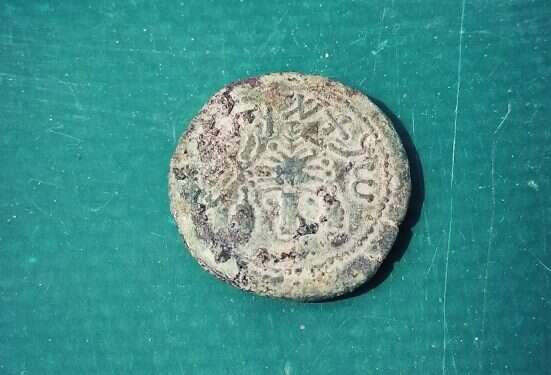A rare coin minted 1,949 years ago was found last week in a dig in the City of David in Jerusalem.
Reut Vilf of the City of David Foundation said the coin, discovered in the sewage system running beneath ancient Jerusalem, dates back to the year 69 C.E. – the fourth year of the Jewish revolt against Rome and the year in which the rebels despaired.
According to Israeli media reports, a cache of bronze coins from that time was found in 2014 in a village near Jerusalem, and more were unearthed in a cave by the Temple Mount in 2018, from the second and fourth years of the rebellion.
The coin found last week bears an inscription ancient Hebrew lettering reading "For the Redemption of Zion" and a depiction of a chalice.
Its other side depicts the Four Species used in the Sukkot holiday – the citron fruit, palm frond, and myrtle and willow branches – and the words "Year Four," referring to the final year of rebellion against the Romans.
"The coin was found exactly in the same place that Jews had been hiding in the drainage channel under the street," Vilf noted. Evidence of the rebels' attempt to hide under the city includes intact oil lamps and ceramic pots that were found whole in the sewer itself.
Interpreting the inscription on the coin, she said, "Freedom is an immediate thing, while redemption is a process. It could attest to their understanding that the end was near."
Eli Shukron, an archaeologist with the Israel Antiquities Authority, said that in all likelihood, the coin could have fallen into the drainage system through cracks of the stone-paved road.

